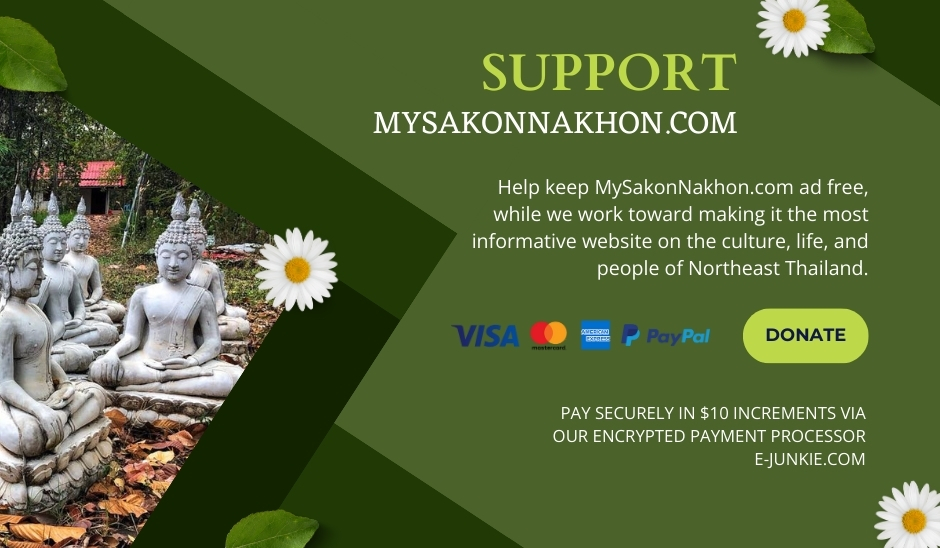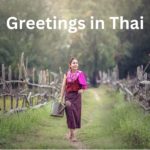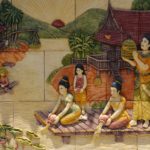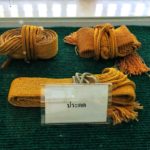
What is Asahna Bucha Day – Thailand Blessings & Greetings
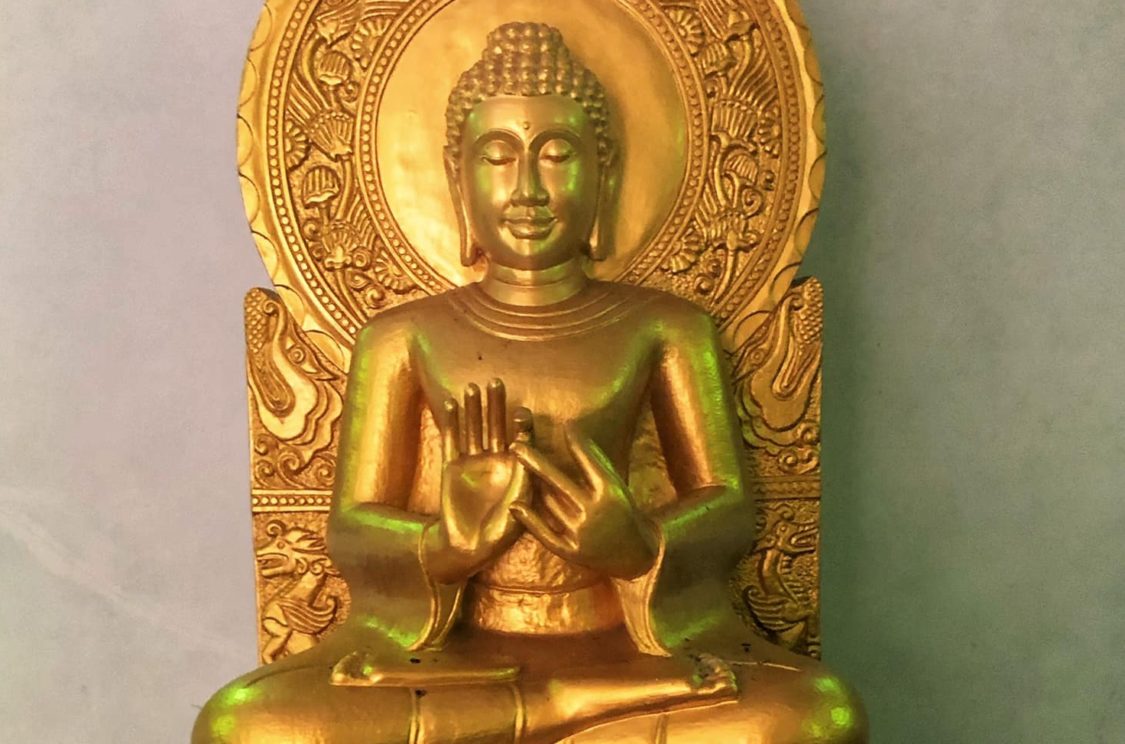
Asahna Bucha Day (วันอาสาฬหบูชา) is a Thai religious holiday that marks the day when the Buddha gave his first sermon on the Dharma. The Dharma describes the nature of reality and the conduct required for personal liberation and the cessation of suffering, as encapsulated in the 8-fold path. Thailand is the only country in the world which celebrates Asahna Bucha Day as a National Holiday, a unique distinction which illustrates how deeply Buddhism is entwined with Thailand’s national character and daily life.
When is Asahna Bucha Day Celebrated in Thailand?
This year Asahna Bucha Day falls on Tuesday August 1, 2023, corresponding to the 15th day of the 8th lunar month. It represents the day that the Lord Buddha gave his first sermon called the Dhammacakkappavattana Sutta (ธัมมจักกัปปวัตตนสูตร), which translates to the “Turning of the Wheel of the Dharma”. The sermon was given 2 months after the Buddha attained enlightenment under the Bodhi tree in Bodh Gaya, India.
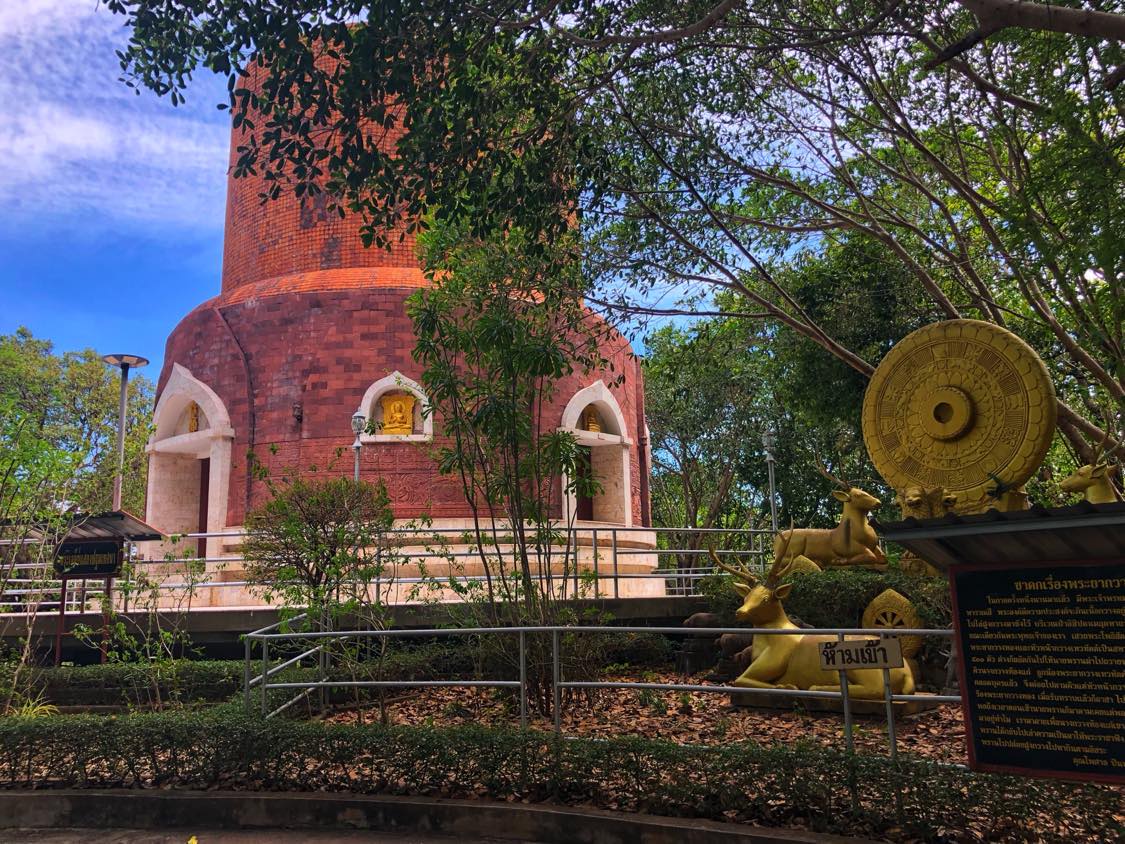
How is Wan Asalha Bucha Celebrated in Thailand?
Asahna Bucha Day, or Wan Asalha Bucha, was designated as a National holiday in 1958, with rules of conduct established for all Thai temples to follow. Activities include the offering of food to monks in the morning, going to temples to listen to sermons, refraining from committing sins and drinking alcohol, making merit in the way of financial donations (giving alms), and circling candles around temple Ordination Halls (Ubosots) in the evening.
There are a few special stupas in Thailand, such as Phra Chedi Sadaeng Pathom Thesana (พระเจดีย์แสดงปฐมเทศนา) in Sakon Nakhon, which have been specifically built to honor the first sermon of the Buddha. Some Thai Buddhists will make a special pilgrimage to one of these stupas on Asahna Bucha Day.
Others will burn incense before a statue of the Buddha displaying the Dharmachakra mudra, which is formed by touching the tips of the thumb and index finger together (on both hands) to form a circle. This circle represents the “Wheel of the Dharma” that was taught in the first sermon. Many temples in Thailand have a statue of the Buddha displaying this mudra/gesture.
What Does Asahna Bucha Mean?
Asahna Bucha (อาสาฬหบูชา), also spelled Asalha Bucha or Asarnha Bucha, consists of the word “Asahna” (อาสาฬห), which means the 8th lunar month, and the word “bucha,” which means worship. Asahna Bucha thus means to worship important events in the 8th month of the lunar calendar. This calendar is a traditional system used in Thailand to determine the dates for various cultural events and religious observances such as Visakha Bucha (Buddha’s Birthday), Asahna Bucha, and Khao Phansa (Buddhist Lent).
What Important Events Happened on Asahna Bucha Day?
When the Buddha delivered his first sermon, Phra Anya Konthanya (พระอัญญา โกณฑัญญะ) gained wisdom to understand the Dharma and was ordained as the first monk of Buddhism, thus completing what is known as The 3 Jewels of Buddhism: The Buddha (the enlightened), the Dharma (teachings), the Sangha (the followers).
Buddha’s first sermon taught the importance of following “the middle way” and avoiding extremes: be it asceticism or indulgence in sensual pleasures. Instead, he taught that we should follow the 8-fold path of right understanding, right thought, right speech, right action, right livelihood, right effort, right mindfulness, and right concentration.
Blessings & Greetings for Asahna Bucha Day
There are not any standard, widely accepted greetings for Asahna Bucha Day (unlike Songkran Greetings). However, there are some greetings and blessings that you’ll occasionally hear among Thais on this religious holiday, especially if you are visiting a temple. Here are a few that you choose from which would impress your friends or extended Thai family. Remember, if you need help pronouncing them, paste the Thai text into Google Translate or the free SayHi App.
Happy Asahna Bucha Day! May the light of the Buddha’s Dharma arise in your heart.
สวัสดีวันอาสาฬหบูชา ขอแสงสว่างแห่งพุทธธรรมเกิดขึ้นในใจคุณ
sà-wàt-dee wan aa-săan-hà-boo-chaa, kŏr săeng sà-wàang hàeng pút-tá-tam gèrt kêun nai jai kun
Good deeds protect, the Buddha protects, the Angels protect, May you live in peace.
บุญรักษา พระคุ้มครอง เทวดาปกป้อง ให้อยู่เย็นเป็นสุข
bun-rák-săa prá-kúm-krong tay-wá-dàap-gà-bpông hâi yòo-yen-bpen-sùk
The flowers bloom by themselves when the time is right. Likewise, your good karma will come back to you.
ดอกไม้บานเอง เมื่อถึงเวลา ความดีที่สั่งสมมา
dòk máai baan ayng, mêua tĕung way-laa kwaam dee têe sàng sŏm maa
Make merit. Don’t wait until you’re old. Because perhaps we won’t reach old age.
ทำบุญอย่ารอทำตอนแก่ เพราะชีวิตคนเราไม่แน่ จะอยู่ถึงแก่หรือไม่
tam-bun yàa ror tam dtorn gàe, prór chee-wít kon rao mâi nâe jà yòo tĕung gàe rĕu mâi
Happy Asahna Bucha Day! May all auspicious things happen to you and your family.
สวัสดีวันอาสาฬหบูชา สรรพมงคลใดๆ ทั้งหลาย จงบังเกิดมีแด่ท่านและครอบครัว
sà-wàt-dee wan aa-săan-hà-boo-chaa, sàp mong-kon dai dai táng lăai jong bang gèrt mee dàe tâan láe krôp-krua
Stay cool enough and you will find happiness.
อยู่ให้เป็นเย็นให้พอ แล้วจะพบกับความสุข
yòo hâi bpen yen hâi por, láew jà póp gàp kwaam-sùk
Suffering is our teacher. The more it splashes upon us, the stronger our wisdom.
ความทุกข์เป็นครูสอนเรา ยิ่งสาดซัดมาเท่าใด ปัญญาก็ยิ่งเข้มแข็งเท่านั้น
kwaam túk bpen kroo sŏn rao, yîng sàat sát maa tâo dai bpan-yaa gôr yîng kâym-kăeng tâo nán
- The Hidden Dharma of Thai Language & Culture - May 11, 2024
- The Royal Ploughing Ceremony in Thailand – A History - May 8, 2024
- Dying Well the Buddhist Way in Thailand - May 7, 2024
